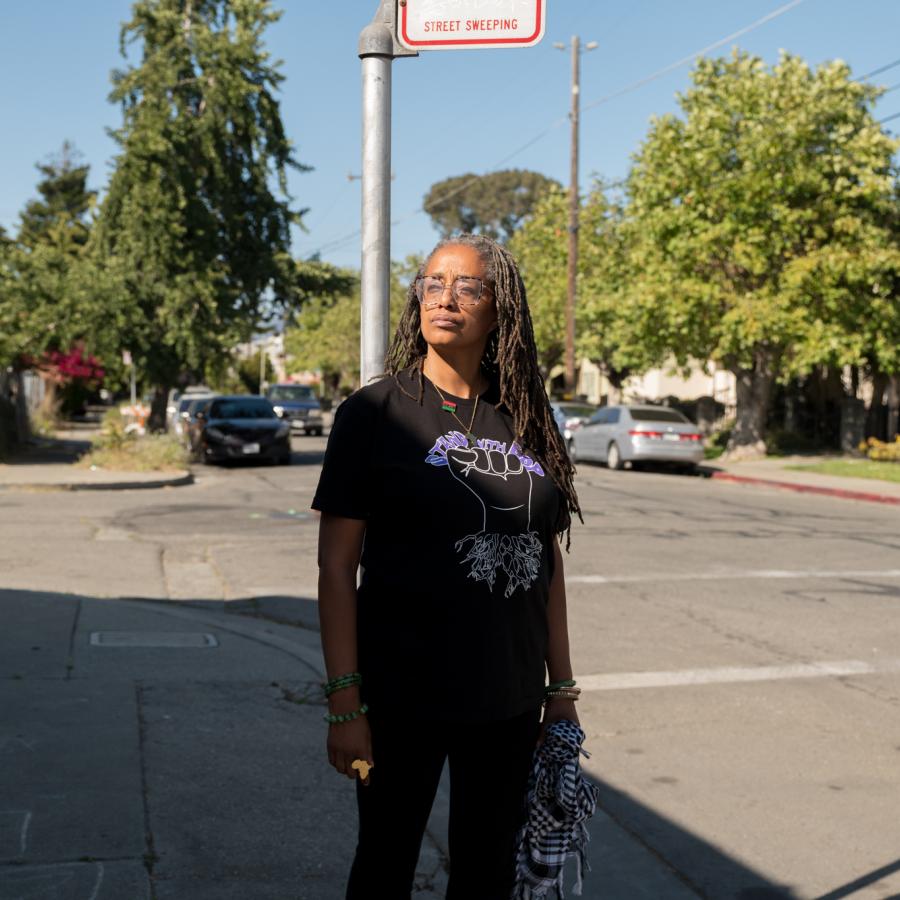Police use of force
- Large racial disparities are evident in police use-of-force incidents in the nine-county Bay Area: the rate of use of force incidents on Black and Latinx residents were higher than all other groups over the nine-year period of 2016 to 2024 combined.
- Over the nine-year period of 2016 to 2024 combined, the rate of use of force incidents on Black civilians was about 43 per 100,000 compared with only 10 per 100,000 overall.
- The overwhelming majority of law enforcement use-of-force incidents involve men.
- Of the nearly 773 use-of-force incidents between law enforcement and civilians in the nine-county Bay Area from 2016 to 2024, nearly 70 percent resulted in serious bodily injury to civilians and about 21 percent resulted in civilian death.
- Napa County has the highest incidence of police use-of-force per 100,000 people (about 26 incidents per 100,000 people), while Marin County has the lowest (about 1 incident per 100,000 people).
From Suburbs to Cities, Police Violence is a Regionwide Issue
Police brutality is a longstanding issue in the US and in the Bay Area, where the Black Panther Party and Black Lives Matter movements took root to counter police violence toward the Black community. Historically, vagrancy laws gave the police license to arrest Black people with little cause. Today, law enforcement is still not held accountable for the shooting deaths of civilians, who are often unarmed and predominantly Black and brown men. Permissive use-of-force policies and the lack of standards, transparency, and robust data perpetuate the challenge. In addition, police unions have generally organized against any attempts at reform aiming for greater accountability.
- Support campaigns to decrease use-of-force and officer-involved shootings.
- Support initiatives to increase police transparency and accountability and end special privileges for police.
- Reduce or eliminate police involvement and prioritize hiring and training counselors and mental health professionals to work with students, unsheltered populations, individuals with mental health concerns, and individuals in intimate partner violence situations.
- Advocate for divestment from police and investment in communities.
- Support community-led alternatives to policing.
- Prioritize positive youth development, engagement, and prevention in improving community/police relations.
- Require local police departments to adopt truth and reconciliation practices.
Oakland Explores an Alternative Model of Crisis Intervention
The City of Oakland is exploring an alternative model of crisis intervention that seeks to improve community safety while reducing police-civilian interactions. The Mobile Assistance Community Responders of Oakland (MACRO) is a community response program for nonviolent crisis intervention through which civilian workers respond to behavioral health crises, issues related to homelessness, and other needs throughout the city. Modeled after the successful CAHOOTS mobile crisis intervention program in Eugene, Oregon, MACRO aims to reduce police use of force incidents by diverting non-emergency calls from the Oakland Police Department to MACRO civilian workers, who help de-escalate nonviolent crises and connect people with appropriate resources and community-based services. The MACRO program, which has been housed within the Oakland Fire Department since the 18-month pilot launched in April 2022, has made at least 13,236 contacts with community members. As of June 2023, 1,225 (9 percent) of these interactions have come from 911 dispatchers. By March 2023, civilian workers have distributed 2,375 blankets to unhoused community members, 3,579 bottles of water, and conducted 1,514 referrals to local service providers. Further refinement and evaluation of the program can build on this promising approach. Learn more.
Wednesday, October 25, 2023 to Wednesday, October 25, 2023Falilah Bilal's Story
 Once again, community has figured it out, as we always do on behalf of ourselves. Because we are the medicine we seek. Here's an answer to the challenge of responding to mental health, substance abuse,and potential real violence.Falilah Bilal, Oakland, Alameda County
Once again, community has figured it out, as we always do on behalf of ourselves. Because we are the medicine we seek. Here's an answer to the challenge of responding to mental health, substance abuse,and potential real violence.Falilah Bilal, Oakland, Alameda CountyFalilah Bilal is a drama therapist who has spent the past three decades working with local organizations in Oakland focused on community empowerment. During her time in the region, she and her family have had two experiences with law enforcement. These interactions resulted in safe and humane treatment of her loved ones thanks to intervention from the Anti Police-Terror Project (APTP). Through support from the organization’s MH First program—a community-centered response project designed to eliminate the need for law enforcement during mental health crises, substance use, and domestic violence—Falilah and her family were able to get the help they needed without the threat of violence. Learn more.
Photo: Felix Uribe
Friday, September 19, 2025 to Friday, September 19, 2025- Organizations: Campaign Zero; Center on Juvenile and Criminal Justice; Impact Justice; Lawyer’s Committee for Civil Rights Under Law; ACLU Southern California; Anti Police-Terror Project; The People’s Coalition for Safety and Freedom
- Reports: Police Alternatives (Well Clinic Anti-Racism Task Force); Emerging Issues: Alternatives to Enforcement; Turning Back the Tide: Promising Efforts to Demilitarize Police Departments; Police Scorecard
- Data: Mapping Police Violence; Tracking Fatal Police Shootings
Disconnected youth


